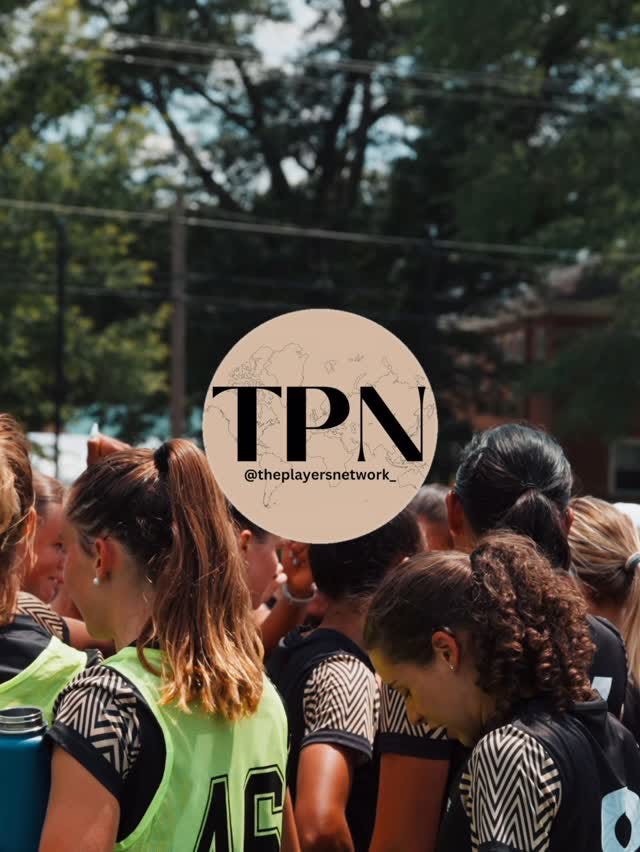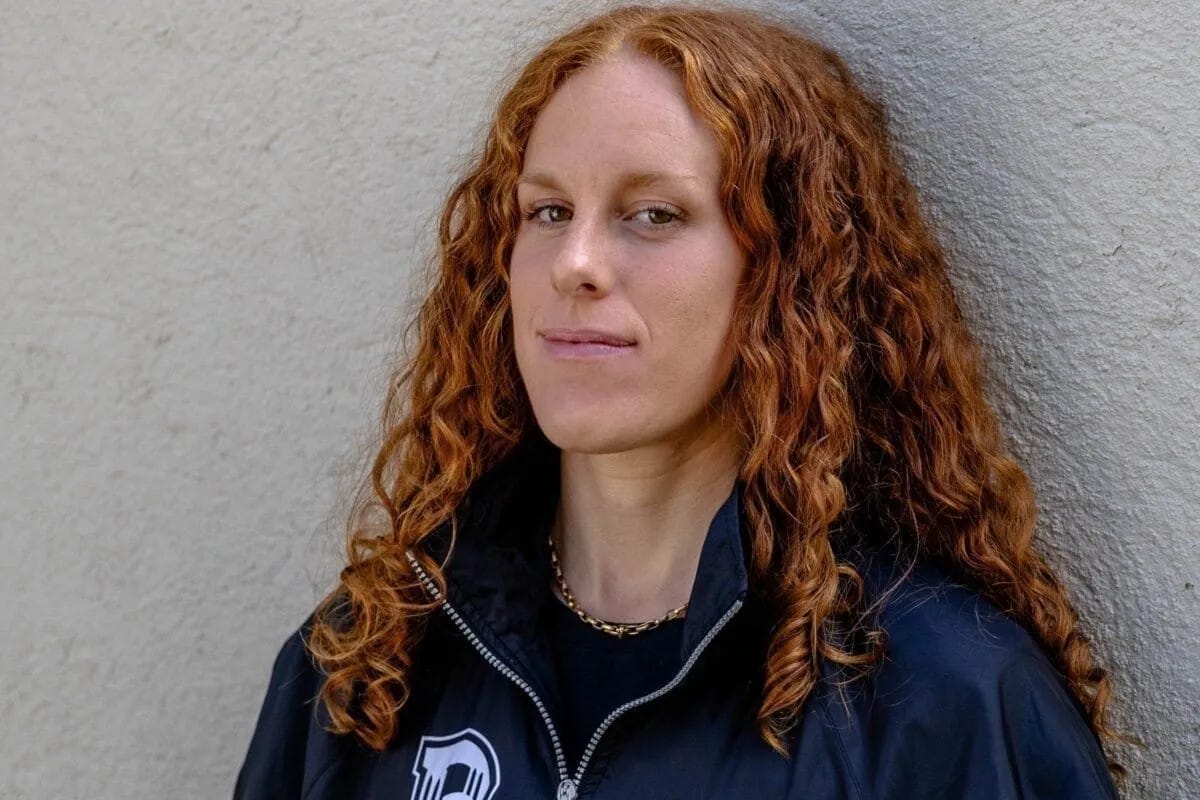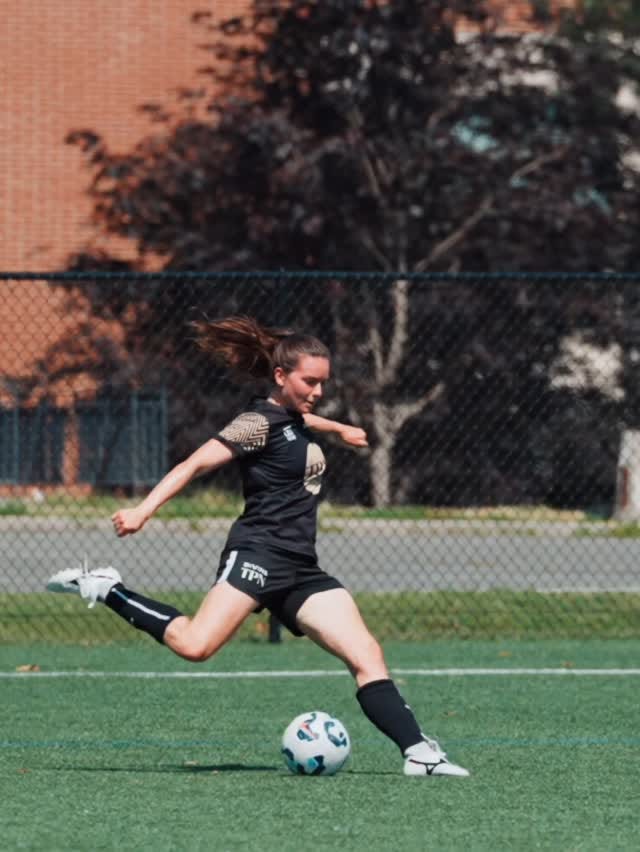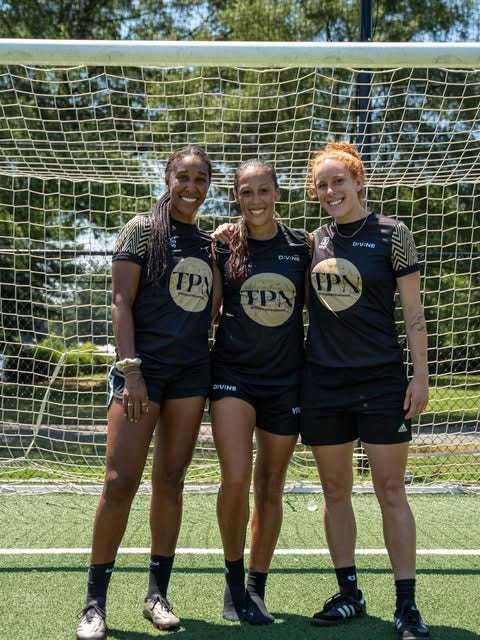US Players Built a Football Combine to Keep Predators Out
Run by The Players' Network, this women's football combine keeps out shady types. All scouts and agents have to be vetted and players discuss how to stand up for their rights.
Women’s combines are plentiful in the United States, yet the format is anything but player-friendly: a club, college, or league books a pitch, charges hopefuls a few hundred dollars for two days of scrimmages, and then slips back into silence.
The typical script is predictable: a club, college, or league books a pitch and charges players a few hundred dollars for two days of scrimmages. Scouts and agents watch from the sidelines, clipboards in hand. Hard work is most often met with silence.
Even for the lucky few who do get approached, the journey is fraught with uncertainty. Players are left to do their own homework, asking critical questions in an information vacuum: Is that new agent trustworthy? Does that fledgling club, often based internationally, truly have their best interests at heart? The system, by its very design, places the burden of risk squarely on the athlete.
For Players, By Players
In late June 2025, a group of players flipped the script. The Players Network (TPN), a community founded and run by professional players, launched what they claim is the first-ever player-led combine for women’s football.
Held in Richmond, Virginia, the inaugural TPN Combine was conceived as a direct answer to the shortcomings of the traditional model. It brought together 52 carefully selected players—all free agents with experience at the college, semi-pro, or professional level—and put them in front of a global audience. who attended both in-person and virtually.
The player roster was a dynamic mix of talent. Some were veterans with years of international experience seeking the next chapter in their careers. Others, like Serbia’s Milića Bulatović, who scored the combine’s first goal, were promising talents fresh out of the American college system.
The significance of this centralized, multi-club format was not lost on the participants. “Open trials are uncommon in the US and almost unheard of abroad,” said player Brenna Connell. “Traditional trials provide limited exposure to a single club, often making it difficult for players to maximize their chances. This combine allowed players like me to be seen by numerous clubs and agencies simultaneously.”
This reach was impressive. Over 40 scouts and club representatives attended in person and virtually, including representatives from DC Power FC of the new top-tier USL Super League. The international presence was equally strong, with attendees from leading teams in France, Canada, Australia, and even Iceland, underscoring the event's global appeal.
An Emphasis on Protection
What truly set the TPN Combine apart, however, was the rigorous process that determined who was allowed to watch. The founders’ primary goal was safe exposure.
This began with an uncompromising vetting process. Unlike conventional combines where access is often a simple matter of paying a fee, TPN strictly controlled who was granted entry. “Everyone—agents, clubs, and scouts—had to apply and undergo thorough checks to participate,” explained co-founder Samantha Rosette, an active player with Brooklyn FC.
Agents had to provide verifiable proof of their credentials and professional history. Scouts and clubs were similarly scrutinized. According to the founders, any issues unearthed during this process, like past misconduct or questionable associations, resulted in immediate disqualification. "We prioritized player safety and career success, carefully granting access only to those with proven integrity and track records," Rosette emphasized.
Co-founder Gabby Cuevas elaborated on this philosophy: "Preference was given to organizations we have built trust with or thoroughly vetted. Our primary goal was ensuring our players’ best interests were always front and center. We’re not just trying to help players get seen," she explained. "We’re trying to make sure they’re not exploited when they do."
“There are two major red flags we're focused on addressing at the moment: teams that don’t properly take care of their players, and untrustworthy agents. We tackle these issues through our trusted network and word-of-mouth within our community,” said Rosette.
This zero-tolerance approach to bad actors created an environment of trust that was palpable. It also provided a powerful answer to the question of why such a model is so desperately needed. The initiative was directly informed by the personal experiences of TPN’s founders and members, and tragically validated by recent high-profile safeguarding failures in women's soccer.
The systemic abuse scandal within the U.S. National Women's Soccer League (NWSL), for example, highlighted grave inadequacies in player protection. In February 2025, the league established a $5 million fund to compensate victims of harassment and abuse by coaches, a move that followed a devastating investigative report by former US Attorney General Sally Yates. That investigation uncovered a deeply troubling culture where players often faced retribution for speaking out and clubs failed to intervene effectively—or, in the worst cases, actively shielded abusers.
Disturbingly, this was not an isolated American problem. Similar trends have emerged internationally, underscoring the global urgency for player-led protection and empowerment initiatives.
Players in countries around the world have reported severe abuses, including sexual harassment and emotional manipulation by coaches and administrators. These stark examples made the critical need for the TPN approach undeniable—one where transparency and athlete welfare supersede commercial or institutional interests.
Building Credibility and Trust
From a recruitment perspective, this rigorous vetting didn’t hinder the process; it enhanced it. Giulio Tedeschi, a women’s football agent from Italy, confirmed that the protective measures significantly boosted the event's credibility.
“Unlike typical combines, there were no hidden sponsors or secret agendas pushing specific players,” he told the Sports and Crime Briefing. “We could freely evaluate talent, confident that the setup was fair and transparent.”
For agents like Tedeschi, the pre-screening of participants served as an added layer of security. "It's just simply something that adds to our due diligence—a new tool that we would be happy to be part of each year to help players who want to be professional become professional," he said.
The confidence that every interaction at the event was with a legitimate and reputable entity allowed him and other scouts to focus purely on talent evaluation. “The TPN is making a good move, making a real difference at the moment," he added. "We are happy to partner with them because we think what they are doing can help us recruit American players, and players playing in the U.S.”
Such protections are becoming increasingly critical as the women's game grows. While the value of player transfers remains a fraction of the men’s, the market is expanding at an explosive rate. Global transfers reached a record $15.6 million in 2024, more than double the figure for 2023. As the popularity and financial stakes in women’s football continue to rise, it becomes all the more important for players to be in control of their own careers and protected from exploitation.
The Network Behind the Combine
The combine, while impactful, is just one facet of TPN’s broader mission. Founded in 2023 by professional players Gabby Cuevas, Samantha Rosette, and Bri Reed, TPN now counts more than 500 members, mostly American or playing in North America.
For a membership fee of just a few dollars a month, players gain access to TPN’s most powerful tool: a database containing more than a hundred anonymous club reviews.
These comprehensive evaluations, submitted by fellow players, score clubs on critical factors like wages, housing, medical care, and safeguarding. This allows members to spot red flags—fake agents, late payers, abusive coaches, or broken-promise contracts—long before they sign on the dotted line.
Beyond the database, TPN offers vital peer support. Member group chats function as an instant radar system, allowing players to quickly share information and warn each other.
“In our circle, a player’s word carries real weight,” one founder noted. “The players have more power than they realise and we want them to recognise that, as a collective, we can make changes.”
TPN’s long-term mission extends far beyond a single event or a group chat. A formal legal clinic and a structured mentorship program sit on the organization’s near-term wish list.
“Historically, men have stolen women’s football and diminished it to be non-profitable and an opportunity to exploit and take advantage of women,” concluded Bri Reed, the third TPN co-founder.
“This new era and growth of women’s football that we’ve seen has come as a result of women beginning to take back those positions of power and getting in the driver’s seat as the game grows worldwide.”
In summary, while the TPN Combine is just starting, its successful launch has established an important and powerful precedent.





